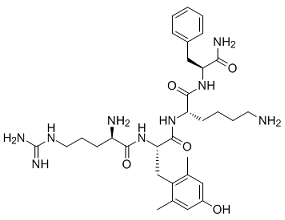It is also possible that the heterogeneity of the cognitive phenotype is due to the IKBKG/NEMO mutation, which produces different phenotypic outcomes in mental functioning as well as physical characteristics. Specifically, our results suggest that the learning abilities most affected are arithmetic reasoning and reading skills, which are reported here for the first time as specific deficits in IP. Therefore, when IP is diagnosed, patients should always be submitted to a cognitive assessment specifically focused on learning skills and should be included in preventive educational programs. The IP syndrome is very problematic because neither the type of IKBKG/ NEMO genetic mutation nor the NEMO/IKKgamma protein affected domain is correlated with the severity of the IP phenotype. Although the presence of learning disabilities also in IP patients without any mental retardation is a significant finding, the pathophysiology of this defect must still be addressed. One challenging approach would be to perform functional MRI studies of the brain to identify any impaired cerebral functions underlying learning deficits in this population. In conclusion, the present study enrols learning disability amongst the CNS defects associated to IP disorder and supports a role of the IKBKG/NEMO gene as a genetic determinant of such a defect. A consequence of the IKBKG/NEMO mutation that might produce different phenotypic outcomes also in mental functioning. Accordingly, we would like to underline the importance of early assessment of learning abilities in individuals with IP who have no mental retardation to prevent the onset of deficits. A very recent study by GinieriCoccossis et al. investigated the quality of life of Ganoderic-acid-F children affected by specific learning disabilities and found that they had poorer emotional well-being, lower self-esteem and a higher level of dissatisfaction in their relationships with family and friends than children without these deficits. In line with this result, Michopoulou et al. also observed psychological problems, such as anxiety, depression, anger and disruptive behaviour, in these children. To avoid stigmatizing effects due to ongoing difficulty in school performance, it is important to submit children with IP to precocious, targeted treatment. Compared with mental delay or other mental disabilities, learning disabilities do not seem to cause any major psychosocial impairment. Nevertheless, failure to achieve academically can become a source of distress or external pressure for children and parents. If these difficulties are not treated at an early age, they can become long-standing and affect psychological development as well as the possibility of achieving professional fulfilment. Therefore, we would like to highlight the urgency of making an early diagnosis of learning disability in girls with IP by means of a comprehensive and thorough neuropsychological assessment, performed by a qualified clinician with regular follow-ups. Finally, we also suggest that re-educational training should be aimed  towards developing appropriate skills and coping mechanisms. Human study showed that blood pressure decrease in the eNOS 894TT carriers was greater than the other genotypes carriers after the exercise training. Therefore, subjects carrying the eNOS 894TT genotype may have low NO in vivo and are more susceptible to endothelial dysfunction, which might increase the risk of MI. The present meta-analysis results of homozygous and recessive genetic models can Benzoylpaeoniflorin account for the above hypothesis. Nevertheless, the number of TT genotype is relatively small in Asia populations and the 95%CI line of the pooled OR for Asia populations is longer than that for non-Asia population studies in Figure 1 and 2.
towards developing appropriate skills and coping mechanisms. Human study showed that blood pressure decrease in the eNOS 894TT carriers was greater than the other genotypes carriers after the exercise training. Therefore, subjects carrying the eNOS 894TT genotype may have low NO in vivo and are more susceptible to endothelial dysfunction, which might increase the risk of MI. The present meta-analysis results of homozygous and recessive genetic models can Benzoylpaeoniflorin account for the above hypothesis. Nevertheless, the number of TT genotype is relatively small in Asia populations and the 95%CI line of the pooled OR for Asia populations is longer than that for non-Asia population studies in Figure 1 and 2.
The heterogeneity in the cognitive phenotype observed in our patient cohort
Leave a reply